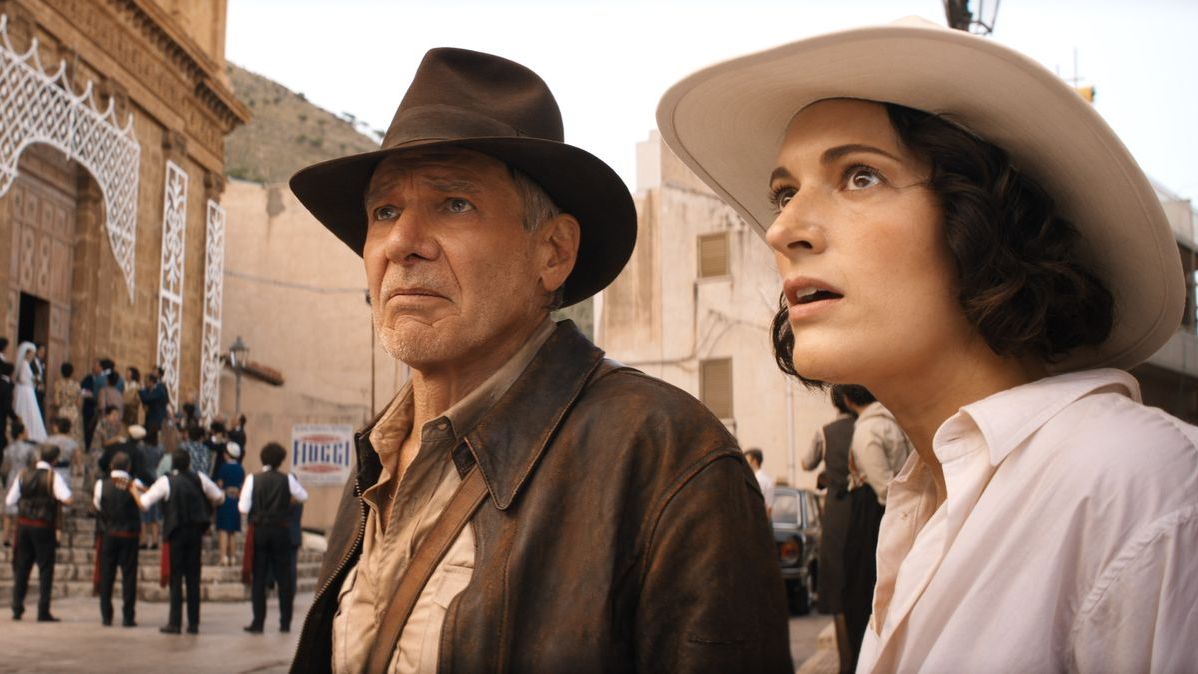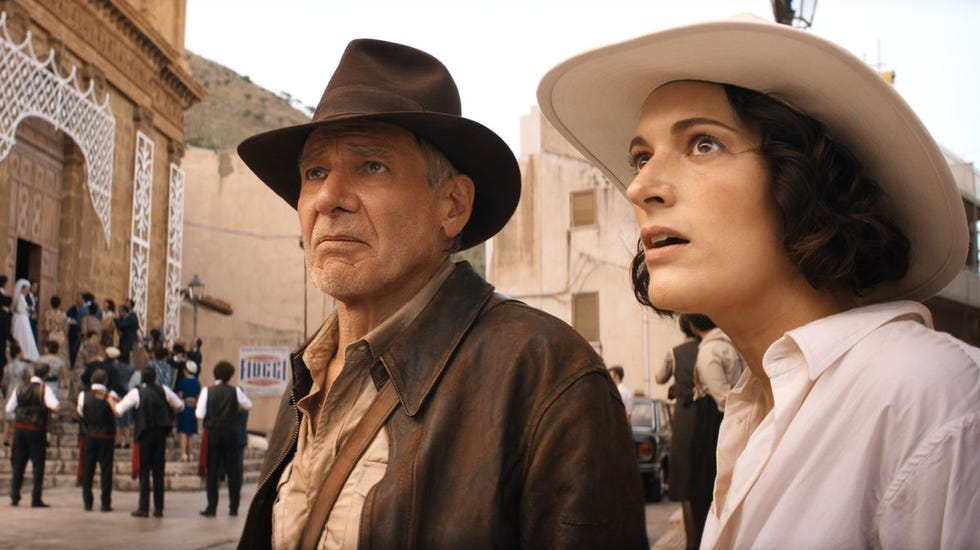
Harrison Ford donned the hat and picked up that famous whip one last time in Indiana Jones and the Dial of Destiny, a brand new action epic featuring the iconic archaeologist and adventurer whom he first portrayed in 1981’s Raiders of the Lost Ark.
In this long-awaited new installment, now streaming on Disney+, Ford shares top billing with Fleabag creator Phoebe Waller-Bridge as his goddaughter Helena Shaw, who joins him on this final adventure. He is also reunited with John Rhys-Davies as Indy’s trusted friend Sallah who last appeared in Indiana Jones and the Last Crusade. The all-star cast additionally includes Antonio Banderas, Mads Mikkelsen, and Toby Jones.
Set partly in 1944 and partly in 1969, Ford appears digitally de-aged in several scenes of the movie, as the narrative bridges the gap between the World War II setting of the early films in the franchise and an older version of the character who more closely resembles the 80-year-old actor now.
The 1940s timeline means fans are likely to be treated to some references to events from Raiders of the Lost Ark, Temple of Doom and The Last Crusade, similarly to how the opening scene in Kingdom of the Crystal Skull served essentially as a prolonged homage to the closing scene in Raiders.
These kinds of Easter eggs are par for the course in epic movie franchises these days—as are extra “secret” scenes which take place after the credits.

Does Indiana Jones and the Dial of Destiny have a post-credits scene?
Unlike pretty much every other blockbuster to hit the multiplex in the last several years, when Indiana Jones and the Dial of Destiny ends, that’s actually the ending. There are no additional scenes during or after the credits, the film is officially over.
This makes sense for a couple of reasons. Firstly, the Indy franchise pre-dates the mid-credit stinger by a couple of decades, and these adventure movies typically end in a much more classical cinematic fashion, with the credits rolling over the film’s last lingering shot. Secondly, Dial of Destiny has been touted to be Harrison Ford’s final adventure as Indiana Jones, so the function that a post-credit scene usually serves—to set up or tease an upcoming sequel—is moot.

Philip Ellis
Philip Ellis is News Editor at Men’s Health, covering fitness, pop culture, sex and relationships, and LGBTQ+ issues. His work has appeared in GQ, Teen Vogue, Man Repeller and MTV, and he is the author of Love & Other Scams.
Entertainment
Advertisement – Continue Reading Below
Advertisement – Continue Reading Below
